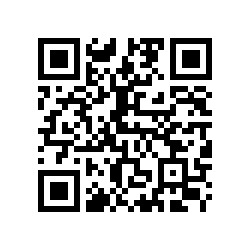Implementasi K-Means Clustering Dalam Analisa Soal Ujian CBT Universitas Baiturrahmah
(1) Universitas Putra Indonesia “YPTK” Padang, Indonesia
(2) Universitas Putra Indonesia “YPTK” Padang, Indonesia
(3) Universitas Putra Indonesia “YPTK” Padang, Indonesia
(*) Corresponding Author
Abstract
Full Text:
PDFReferences
F. Mulianingsih, K. Anwar, F. A. Shintasiwi, And A. J. Rahma, “Program Studi Tadris Ilmu Pengetahuan Sosial Institut Agama Islam Negeri Kudus Artificial Intellegence Dengan Pembentukan Nilai Dan Karakter Di Bidang Pendidikan,” 2020. [Online].
Available: Http://Journal.Stainkudus.Ac.Id/Index.Php/Ijtimaia
M. Petrus Saptono And H. F. Widjasena, “Sekolah Berbasis Komputer Atau Computer Based Test (Cbt) Di Smk Negeri 1 Kabupaten Sorong.”
S. N. Safitri, Haryono Setiadi, And E. Suryani, “Educational Data Mining Using Cluster Analysis Methods And Decision Trees Based On Log Mining,” Jurnal Resti (Rekayasa Sistem Dan Teknologi Informasi), Vol. 6, No. 3, Pp. 448–456, Jul. 2022, Doi: 10.29207/Resti.V6i3.3935.
W. Sudrajat, I. Cholid, And J. Petrus, “Penerapan Algoritma K-Means Clustering Untuk Pengelompokan Umkmmenggunakan Rapidminer,” P. 27.
Z. Mustakim And R. Kamal, “K-Means Clustering For Classifying The Quality Management Of Secondary Education In Indonesia,” Cakrawala Pendidikan, Vol. 40, No. 3, Pp. 725–737, Oct. 2021, Doi: 10.21831/Cp.V40i3.40150.
Y. N. Dewi, H. Rianto, C. Budihartanti, And F. W. Fibriany, “Penerapan Metode K-Means Dalam Menentukan Kelompok Pendalaman Materi Ujian Nasional,” Journal Of Information System, Applied, Management, Accounting And Research, Vol. 6, No. 1, P. 26, Feb. 2022, Doi: 10.52362/Jisamar.V6i1.670.
R. Nurfalah, Dwiza Riana, And Anton, “Identifikasi Citra Beras Menggunakan Algoritma Multi-Svm Dan Neural Network Pada Segmentasi K-Means,” Jurnal Resti (Rekayasa Sistem Dan Teknologi Informasi), Vol. 5, No. 1, Pp. 55–62, Feb. 2021, Doi: 10.29207/Resti.V5i1.2721.
R. S. D. Wijaya, Adiwijaya, Andriyan B Suksmono, And Tati Lr Mengko, “Segmentasi Citra Kanker Serviks Menggunakan Markov Random Field Dan Algoritma K-Means,” Jurnal Resti (Rekayasa Sistem Dan Teknologi Informasi), Vol. 5, No. 1, Pp. 139–147, Feb. 2021, Doi: 10.29207/Resti.V5i1.2816.
N. A. Maori, “Metode Elbow Dalam Optimasi Jumlah Cluster Pada K-Means Clustering,” Jurnal Simetris, Vol. 14, 2023.
Zulkifli N, “Efektivitas Pelaksanaan Ujian Semester Menggunakan Computer Based Test,” 2022.
A. Riandy Agusta, “Development Of Learning Outcomes Assessment Instruments Using Computer Based Test (Cbt),” 2022.
K. H. Chun Et Al., “Novel Innovative Computer-Based Test (Inno-Cbt) Item Types For National Licensing Examinations For Health Care Professionals,” Bmc Med Educ, Vol. 23, No. 1, P. 560, Aug. 2023, Doi: 10.1186/S12909-023-04444-5.
S. Huh, “Application Of The Computer-Based Testing In Korean Medical Licensing Examination, The Emergence Of A Metaverse In Medical Education, Journal Metrics And Statistics, And Appreciation To Reviewers And Volunteers,” Journal Of Educational Evaluation For Health Professions, Vol. 19. Korea Health Personnel Licensing Examination Institute, 2022. Doi: 10.3352/Jeehp.2022.19.2.
DOI: https://doi.org/10.30645/kesatria.v5i2.367
DOI (PDF): https://doi.org/10.30645/kesatria.v5i2.367.g364
Refbacks
- There are currently no refbacks.
Published Papers Indexed/Abstracted By:














